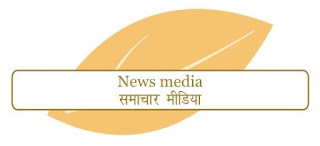The approach of media towards politics and politicians can affect public opinion deeply.
Should media be biased? Or neutral?
World media needs to be impartial and unbiased, which, at present, it is not. Due to globalization of information, biases quickly travel across the globe. This leads to some pre-held notions about particular leaders of countries in one section of the media to influence other media all over the world. The media should analyze issues on the basis of the ‘why’, the ‘how’, the ‘when’ and the ‘what’ of the issue rather than the ‘who’. They should focus their attention on the issue rather than the person who has raised the issue. Possibly leaders like Trump, or Modi may be doing things right, but the media should start its analysis about it without a pre-conceived bias to understand the intentions of such leaders. When the media calls Modi a ‘Hindu nationalist’, it does not bother to explain it or understand whether he wants to nuance or change his image. The casual use of the term makes the analysis cheap. If neutrality is adhered to, the quality of the analysis would also improve. The media needs to ask meaningful questions to itself about particular policies of a leader before starting it analysis. The important question is not about the correctness or otherwise of a policy, but it rather is about not getting caught in media frenzy. For instance, the possible restrictions on H-1B visa could be an opportunity for India to start building its own Silicon Valley with the easy access to US jobs having been vanished. As Trump has said, if the media stays neutral, it can be ‘tremendous’, but if it stays biased, it can be a ‘disaster’.
[ ##thumbs-o-up## Share Testimonial here - make our day!] [ ##certificate## Volunteer for Bodhi Booster portal]
Amazing Courses - Online and Classroom
क्या मीडिया को पक्षपाती होना चाहिए? या निष्पक्ष?
विश्व मीडिया को निष्पक्ष होना पड़ेगा, जो शायद आज वह नहीं है।
सूचनाओं और जानकारी के वैश्वीकरण के कारण पूर्वाग्रह तेजी से विश्व भर में फैलते हैं। इसका परिणाम मीडिया के एक वर्ग में विश्व के विशिष्ट नेताओं के प्रति अनेक पूर्व-निर्धारित अवधारणाओं में होता है जो विश्व की शेष मीडिया को भी प्रभावित करती हैं।
मीडिया को मुद्दों का विश्लेषण मुद्दे के ‘क्यों’, ‘कैसे, ‘कब’, और ‘क्या’ के आधार पर करना चाहिए न कि ‘कौन’ के आधार पर। उसे मुद्दे पर ध्यान केंद्रित करना चाहिए न कि इस बात पर कि मुद्दा किसने उठाया है।
हो सकता है कि संभवतः ट्रम्प या मोदी जैसे नेता सही काम कर रहे हों, अतः मीडिया को विश्लेषण करने से पहले उनके उद्देश्यों को समझना चाहिए, तभी मीडिया विश्लेषण अर्थपूर्ण होगा, साथ ही ऐसा करते समय उसे अपने पूर्वसग्रहों को भी दूर रखना होगा।
जब मीडिया मोदी को ‘हिंदू राष्ट्रवादी’ कहती है तो वह उसका स्पष्टीकरण करने का कष्ट नहीं उठाती कि वे अपनी छवि को परिवर्तित करना चाहते हैं या अति-सूक्ष्म अंतर निर्मित करना चाहते हैं। शब्दों का लापरवाह और गैर-जिम्मेदाराना उपयोग विश्लेषण के महत्त्व को कम कर देता है।
यदि निष्पक्षता को बनाए रखा जाए तो विश्लेषण की गुणवत्ता में भी सुधार होगा। किसी भी नेता के किसी नीतिगत फैसले का विश्लेषण करने से पूर्व मीडिया को स्वयं से अर्थपूर्ण प्रश्न पूछना चाहिए।
यह बात महत्वपूर्ण नहीं है कि कोई विशेष नीति सही है या गलत है, बल्कि महत्वपूर्ण यह है कि मीडिया को इस भीड़ में शामिल नहीं होना चाहिए।
उदाहरणार्थ, एच -1 बी वीजा पर लगाए जाने वाले प्रतिबंध भारत के लिए इस बात का अवसर हो सकता है कि वह अपनी स्वयं की सिलिकॉन घाटी निर्मित करें क्योंकि आसानी से उपलब्ध होने वाली अमेरिकी नौकरियां समाप्त होने वाली हैं।
जैसा कि ट्रम्प ने कहा है, यदि मीडिया निष्पक्ष बनी रहती है तो वह ‘चमत्कार’ कर सकती है परंतु यदि वह पक्षपाती बनती है तो वह ‘आपदा’ बन सकती है।
Useful resources for you
[Newsletter ##newspaper-o##] [Bodhi Shiksha channel ##play-circle-o##] [FB ##facebook##] [हिंदी बोधि ##leaf##] [Sameeksha live ##graduation-cap##] [Shrutis ##fa-headphones##] [Quizzes ##question-circle##] [Bodhi Revision ##book##]





















COMMENTS